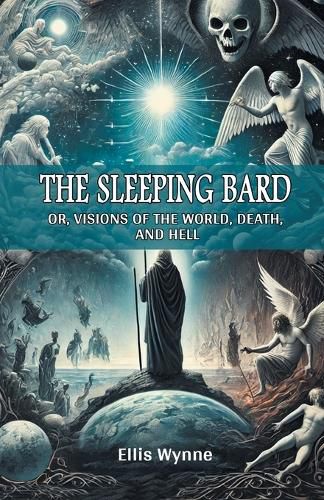Readings Newsletter
Become a Readings Member to make your shopping experience even easier.
Sign in or sign up for free!
You’re not far away from qualifying for FREE standard shipping within Australia
You’ve qualified for FREE standard shipping within Australia
The cart is loading…






The Sleeping Bard: Or, Visions of the World, Death, and Hell by Ellis Wynne is a seminal work of allegorical literature from the 18th century. The book presents a visionary narrative that explores themes of morality, death, and the afterlife through a spiritual journey. Wynne's satirical approach critiques human nature and religious concepts, vividly depicting the contrasts between good and evil. The story unfolds as a dream-like sequence, where the protagonist experiences visions of hell and the world's moral failings, offering a profound commentary on Christian symbolism and judgment. Written in Welsh, the book reflects its cultural and religious context, contributing to the Welsh literary tradition. The allegory serves both as a moral critique and a reflection on the nature of existence and the afterlife, making it a significant piece in the study of religious and philosophical literature.
$9.00 standard shipping within Australia
FREE standard shipping within Australia for orders over $100.00
Express & International shipping calculated at checkout
The Sleeping Bard: Or, Visions of the World, Death, and Hell by Ellis Wynne is a seminal work of allegorical literature from the 18th century. The book presents a visionary narrative that explores themes of morality, death, and the afterlife through a spiritual journey. Wynne's satirical approach critiques human nature and religious concepts, vividly depicting the contrasts between good and evil. The story unfolds as a dream-like sequence, where the protagonist experiences visions of hell and the world's moral failings, offering a profound commentary on Christian symbolism and judgment. Written in Welsh, the book reflects its cultural and religious context, contributing to the Welsh literary tradition. The allegory serves both as a moral critique and a reflection on the nature of existence and the afterlife, making it a significant piece in the study of religious and philosophical literature.